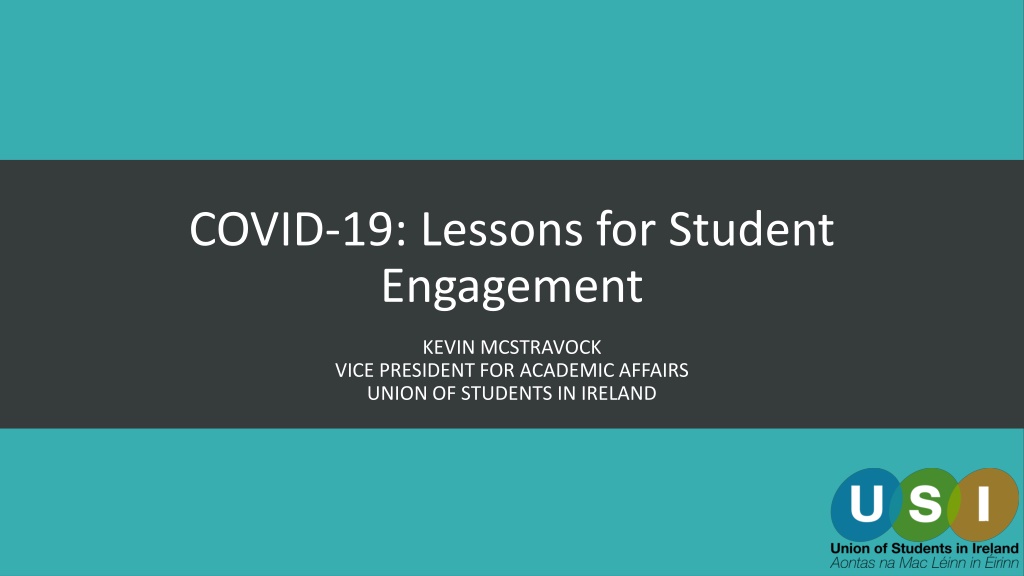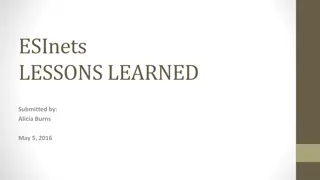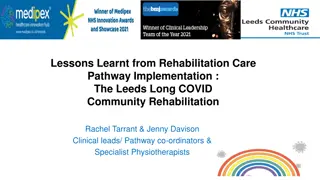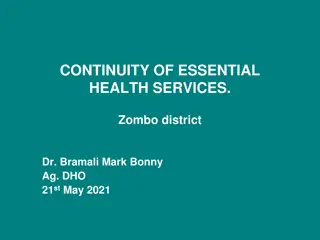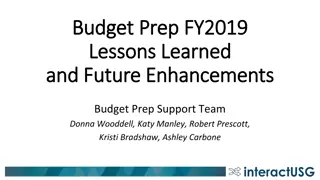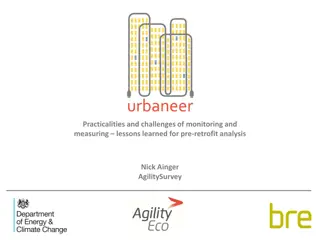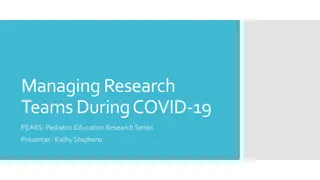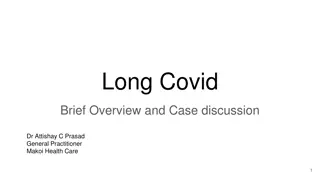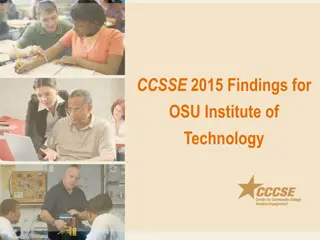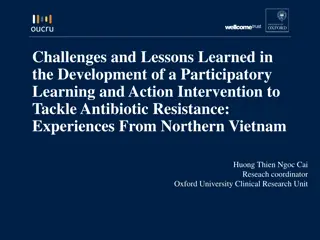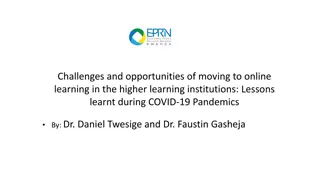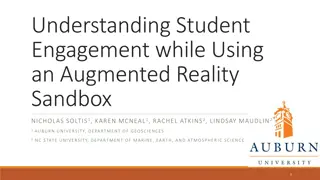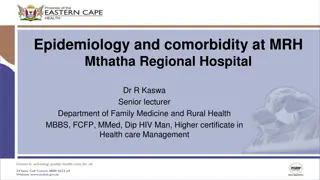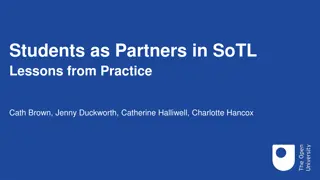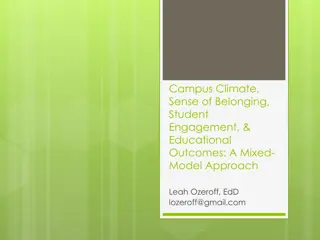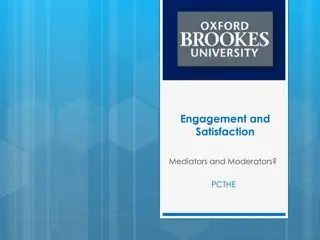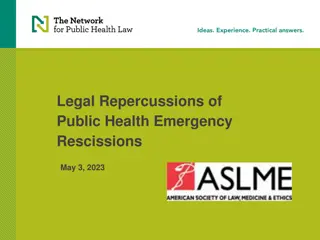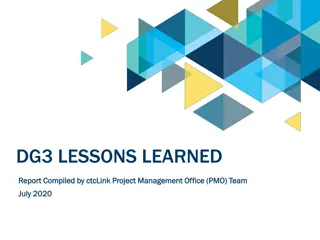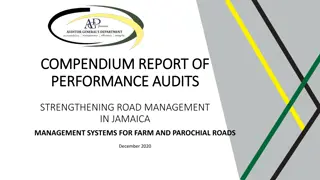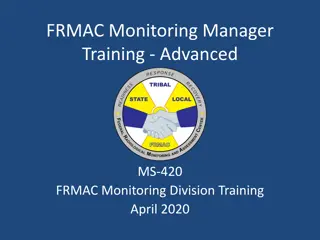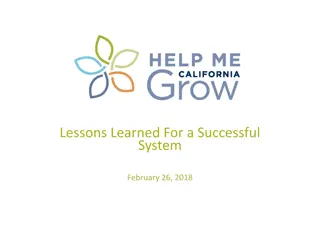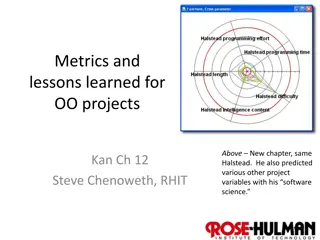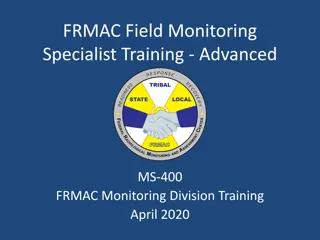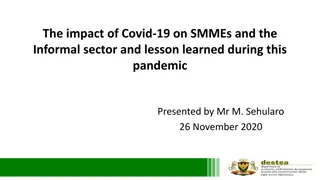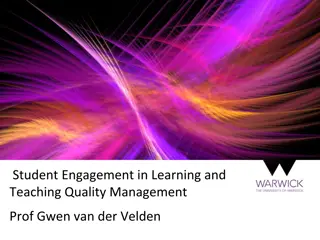Lessons Learned from Student Engagement Challenges During COVID-19
The impact of COVID-19 on student engagement highlighted various challenges such as connectivity issues, lack of devices, and motivation among students. A survey revealed insights into students' experiences and struggles, including online learning quality, assessment performance, and lack of engagement opportunities. Recommendations to prioritize student engagement for an effective academic experience moving forward were discussed based on positive and negative experiences during the pandemic.
Download Presentation

Please find below an Image/Link to download the presentation.
The content on the website is provided AS IS for your information and personal use only. It may not be sold, licensed, or shared on other websites without obtaining consent from the author. Download presentation by click this link. If you encounter any issues during the download, it is possible that the publisher has removed the file from their server.
E N D
Presentation Transcript
COVID-19: Lessons for Student Engagement KEVIN MCSTRAVOCK VICE PRESIDENT FOR ACADEMIC AFFAIRS UNION OF STUDENTS IN IRELAND
What were going to talk about: THE LAST FEW MONTHS IMPACT ON STUDENTS STUDENT ENGAGEMENT DURING A PANDEMIC WHAT CAN WE LEARN FOR THE NEXT ACADEMIC YEAR?
WHAT DID COVID-19 MEAN FOR STUDENTS? Everything changed overnight colleges closed early March - teaching and assessments moved online. Students faced numerous barriers connectivity issues, lack of devices, inadequate study space, lack of motivation. Communication was difficult to prioritise during a pandemic. Some student groups were more adversely impacted by COVID-19: Student Parents, Students with Disabilities, International Students. Some indirect benefits: Move to open book and continuous assessment formats, flexibility of deadlines appreciated where implemented.
USI COVID-19 SURVEY Rolled out 2nd - 15th June. Over 1,200 responses received. Who did we hear from? Types of Institution : 49.63% - Institute of Technology; 41.31% - University; 6.69% - Technological University, 2% - Teaching College/Other HE Providers, Small FET representation. Level Of Study: 90% - Undergraduate, 5% - Postgraduate Taught, 3% - FET, 2% - Postgraduate Research (including PhD). Year Group: 43.63% - Years 2 & 3 Continuing, 29.31% - First Year, 25.64% - Final Year. Subject Area: 20.46% - Business, Administration & Law, 17.96% - Arts & Humanities, 17.32% - Natural Sciences, Mathematics & Statistics, 15.06% - Health & Welfare.
CRUNCHING THE NUMBERS Over a third of students didn t have the opportunity to engage with other students. Just over half of students felt the online learning content offered was of good quality. Almost 40% of students feel that they performed worse in assessments as a result of COVID-19. Lack of motivation affected almost 80% of students. Bunching of assessments (45.41%), Lack of Access to Equipment (40.88%) and Lack of Academic Support (38.56%) massively impacted students during the COVID-19 teaching period.
SO WHAT ABOUT STUDENT ENGAGEMENT? Where students had positive experiences, lecturers were flexible, communicative and allowed students to feed into alternative assessment. Where students had negative experiences communication was slow, assessments bunched together and they felt that support wasn t available to them. Priority was finishing off the academic year student engagement may have been deprioritised in some cases. Moving forward, student engagement must be prioritised view it as the vehicle to building an effective experience for students.
LESSONS LEARNED GOING FORWARD Structure is central to the success of any blended delivery of learning going forward over half of students want more structured online learning going forward. Students value good communication (23.62%), not only with their lecturers but with other students too. Face-to-face contact is central to the development of relationships and building of a community but this can be extended online when students are being taught off campus. The importance of listening to, and hearing the voice of students, and using this to develop your plans Nothing about us without us
Thank you for your attention! Any questions? education@usi.ie Twitter: @USI_Education Mobile: 086816 5498 Find the full report on usi.ie!
